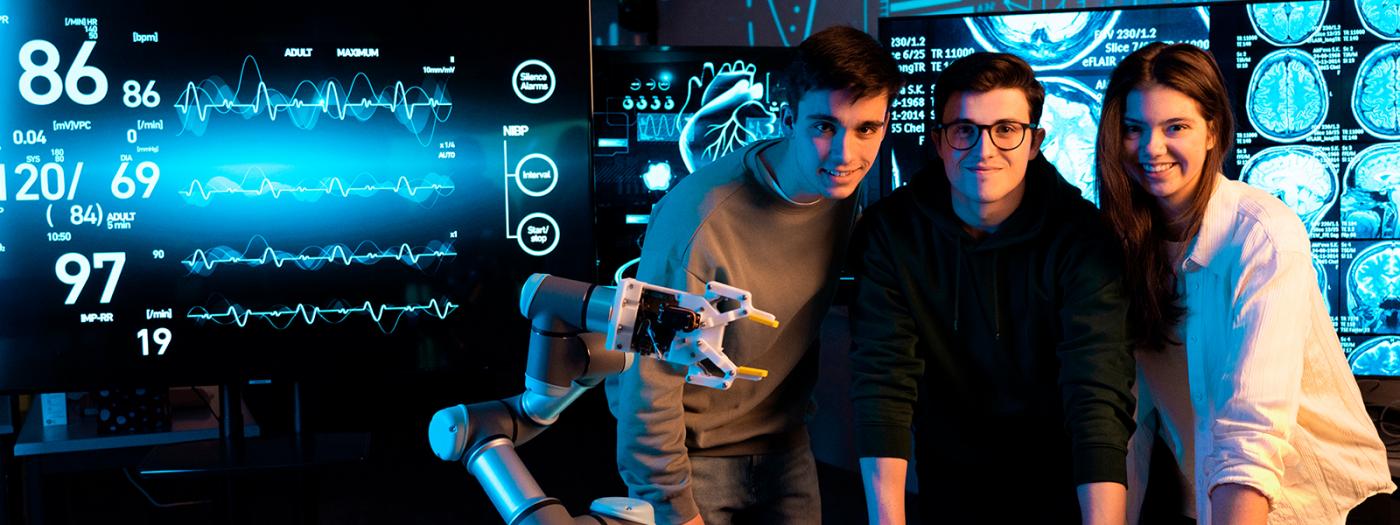The Bio-Orthopedics course aims to educate students on the principles and applications related to biomechanics and orthopedic devices. Through this subject, the principles of design and manufacturing of orthopedic devices, prosthetics, robotic mechanisms, bionics, and exoskeletons are covered, as well as other technologies to improve functionality and quality of life for patients.
Titular Professors
Students acquire the following knowledge and develop the following skills:
1. Demonstrate the ability to assess and analyze physical problems requiring the application of prostheses, orthoses, exoskeletons, or bionic devices.
2. Know how to design, develop, and evaluate new models of prostheses, orthoses, exoskeletons, or bionic devices, tailored to each individual.
1. Physical qualities and functional capacities: assessment, detection of disabilities, determination of suitable prostheses and orthoses for each individual.
2. Analysis of prostheses and orthoses for activities of daily living, both in the workplace and in recreational and sports tasks.
3. Structure and function of prostheses and orthoses for the lower limb and for the upper limb.
4. Models of robotic prostheses, bionics, and exoskeletons.
5. Design of prostheses and exoskeletons.
In the Bio-Orthopedics course, lectures are given to explain theoretical content, complemented with problems and exercises. Additionally, problem-based learning will be conducted with the aim of actively engaging students in solving real-life cases.
Check the electronic folder for the course.
Check the electronic folder for the course.
Check the electronic folder for the course.
